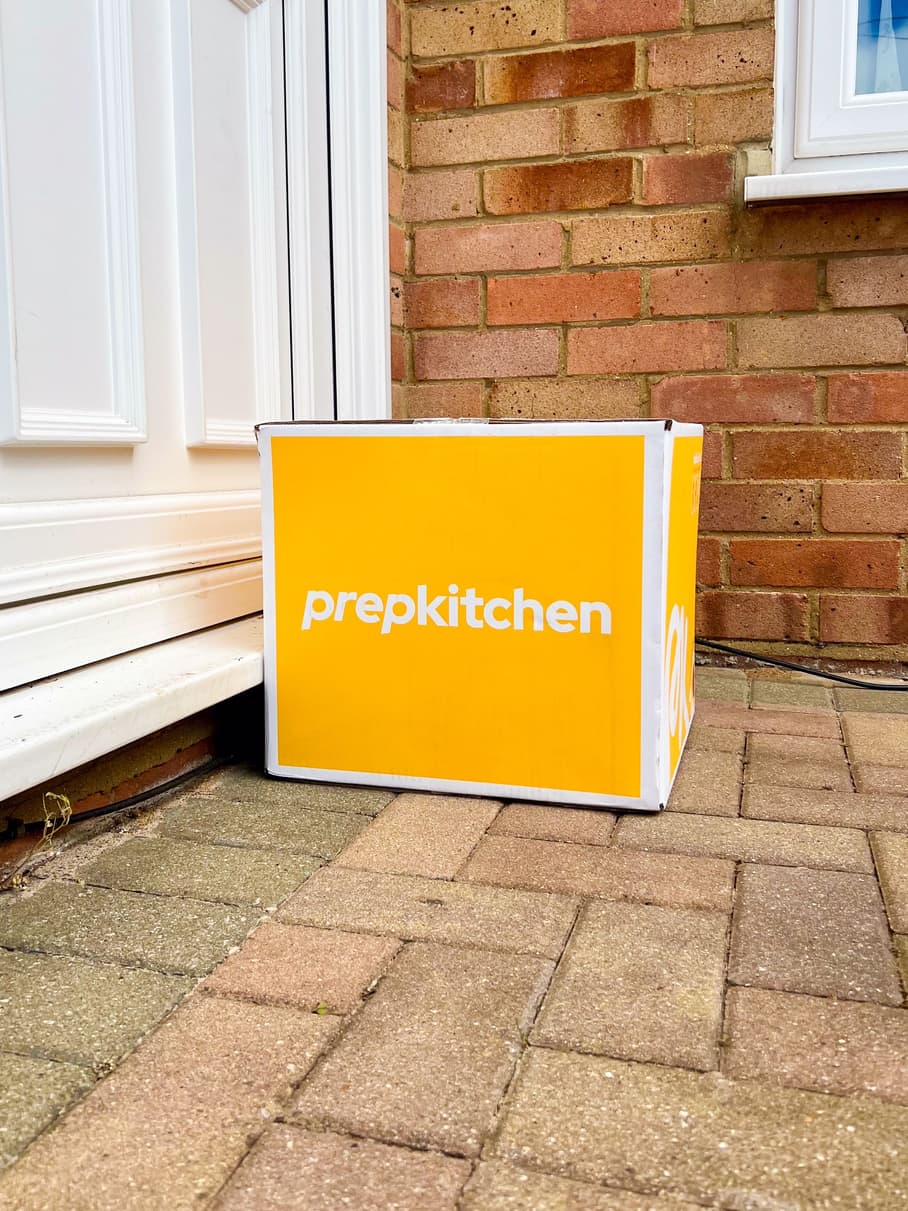As a food company, we understand everyone has a unique and individual relationship with their food. This is why we feel that it's so important to acknowledge Eating Disorders Awareness Week (EDAW), which held each year in February. This annual campaign aims to shine a light on the often-misunderstood realities of eating disorders and to offer hope and visibility to individuals and their loved ones who are impacted by food-related mental health issues. The statistics are sobering: eating disorders tragically have the second-highest mortality rate among mental illnesses, with a life lost approximately every 52 minutes.
There is often a stigma (1) surrounding the topic of eating disorders, so it's vital to spread awareness and educate others about this critical issue. This year's EDAW theme is "The Time is Now" - it will be focusing on breaking down the barriers of ignorance surrounding eating disorders, and attempting to highlight the need for increased awareness, early intervention, and readily available resources.
The first thing to be aware of is that there are many different types of eating disorders, which can manifest in different ways.
Types of eating disorders
The most commonly diagnosed eating disorders with a recognised symptom cluster are anorexia nervosa, bulimia nervosa, and binge eating disorder. (2) Anorexia nervosa typically involves restricting food and/or over-exercising to lose weight. In bulimia, people are unable to successfully regulate their food intake so they often overeat and then take serious measures to compensate for this. People with binge eating disorder (BED) consistently over-eat and become uncomfortably full.

However, many mental health issues involving food do not fit the profile of these specific disorders, so are classified as 'other specified feeding or eating disorders' (OSFED). There are also a variety of other disorders linked to avoiding food for a variety of reasons not connected to weight loss - these are known as 'avoidant/restrictive food intake disorders', or ARFIDs. Whilst not yet recognised as an eating disorder, orthorexia is another food-related obsessive disorder in which people become obsessed with eating 'clean' or 'pure' foods, to the point where it hurts their daily lives. Collectively, these other variants form the largest group of eating disorders.
Raising awareness
As a food company, we feel it's important for us to raise awareness about food-related mental health issues. We want to encourage people to develop healthy relationships with food, and to help smash taboos so that those living with eating disorders feel supported, understood, and empowered to get the help they need.
We're proud to be working on this article with the help of two of our valued ambassadors, Beth Robinson and Amber Keegan, who have themselves both experienced and successfully recovered from, an eating disorder. Eating disorders are very common in athletes, and Amber now helps to run a peer support service for the non-profit organisation, Athlete Interactions, which aims to support mental health issues in female athletes.
We sat down with Beth and Amber to discuss their experiences and asked if they could share a few details about their personal journeys.
Amber began by highlighting the insidious nature of eating disorder development:
"When I first developed an eating disorder, I didn't realise I had one. Coming to terms with that took a long time. I had become so accustomed to the anxiety, guilt, and fear around food, I couldn't remember life before this."
This is what makes campaigns that raise awareness in both sufferers, and their families, so vitally important, so that it's easier to spot the signs of disordered eating, and allow people to get early support. For some people, eating disorders can dominate their lives for years, and many attempts at recovery end up making the problem worse, often due to society's ignorance of the dangers.

Most people don't understand that overcoming an eating disorder can be incredibly challenging. Amber explained more about this:
"Recovery was the hardest thing I've ever done - and I've swum the English Channel! I used to know the calorie content of every meal, now I have an excellent relationship with food. With professional help, I've learned to listen to my body and intuitively eat a healthy, balanced diet. Everyone's recovery and motivation to get better will be different. My motivation was the desire to get back to doing my sport well. Finding your own 'why' is such a powerful tool."
The theme of this year's awareness campaign is "Anyone can be affected". It's important to realise that eating disorders can affect people of all genders and ages, even children - you may already know someone with an eating disorder but you don't realise it. Society's views on weight and appearance can only serve to make recognition and recovery even more difficult. Beth shared her own experiences:
"I've struggled with an eating disorder since I was about 13, fluctuating through periods of recovery and being unwell. When I got into fitness I started calorie tracking and ended up even more unwell, whilst being praised for being thin. I decided I needed to recover, steer clear of dieting, and pursue a more intuitive style of eating."
Recovering from an eating disorder
Just like every person, every eating disorder is different, manifesting in unique ways for each individual. Once diagnosed, recovery meal plans should be discussed and carefully planned with the aid of your doctor, a dietician, and other specialist services. It's very important to work with qualified professionals to make sure that your diet plan is right for you, and you shouldn't attempt to manage the condition alone without the correct support.
Going forward, as part of their long-term maintenance programme, some people find it can be helpful to use a meal prep service. However, this strategy should still be discussed with your medical support team where necessary, to make sure that this approach is appropriate for your own needs.

Benefits of using a meal prep service
We asked Beth and Amber their thoughts on using a meal service and whether they had found it to be of benefit for their own journey. Beth explained that she had found it helpful to let someone else do the thinking and planning for her.
"Being so into sports I still care about eating healthy without hyper-fixation on numbers. Prep Kitchen meals are tasty, with the balanced macros and nutrients that I need to fuel my training and keep me full. As a new mum who is short on time to cook, having Prep Kitchen meals delivered makes healthy eating effortless, without risking triggering my eating disorder. Because they're balanced and satisfying, I don't fall into that mindset of restriction. Many of the meals are takeaway-style, which used to be a previous binge food for me, but the healthy Prep Kitchen versions satisfy the craving without risking a binge."
Amber found that using a meal prep service helped to stop her feeling tired and overwhelmed by food planning.
"For me, it definitely helped. Planning and prepping meals myself took so much energy it felt overwhelming. Having healthy prepped meals in the fridge or freezer meant even if I didn't have that mental energy, I'd still have a way of feeding myself! In busy periods, like exam season or heavy training blocks, it could have been easy to slide back into the habit of skipping meals. Meal prep services helped me to maintain my positive steps forward."
What advice would you give to someone who is currently struggling with an eating disorder?
Like any other mental health condition, eating disorders can make sufferers feel alienated, lonely, and unsure of how to cope. Amber stressed that if you think you, or someone you know, is starting to develop difficulties around food and food consumption, then it's vitally important to seek help straight away. Early intervention can be crucial.
"If you aren't already getting professional help, please reach out. There can be long waiting times on the NHS but please do try, and try again if needed! There are so many good people out there who can help you. Secondly, if you are in the position to be able to share what's going on with a few people closest to you, it will make all of the difference. Having them support you with things you might find difficult, for example, shutting down diet talk at the dinner table, or suggesting calorie-free menus for the table if you're out for food."
Beth emphasised the need to seek specialist support, and shared some words of wisdom and encouragement for sufferers:
"Firstly get support from a medical professional who specialises in eating disorders, Don't fall for online sites that claim to "fix your relationship with food" with restrictive diets. Sadly that's not how it works - you need to find what works for you. I'm much happier just focusing on health and fuelling my performance in the gym, rather than obsessing over appearance and trying to shrink myself."

There is no one-size-fits-all in eating disorders, which is why it's so important to get help with a personalised programme for recovery. Amber reinforced the message that, although there are some standardised symptoms, each person will have their own unique experience of illness and recovery. The main thing is to stay focused on your own needs and be kind to yourself.
"Just like with physical injuries, two people can experience the same condition but heal in different ways—one might fully recover, while the other may need to manage it long-term. But that's not a reason to lose hope. Because I promise you, no matter what your recovery looks like, it will be a million miles better than life within the constraints of an eating disorder.
Your recovery isn't a race. It's not a competition. It's a journey. And I promise you - it will be worth it."
We're extremely grateful to Beth and Amber for sharing their personal stories with us, and sincerely hope that this article will offer some useful advice and insights.We want to help encourage positive relationships with food that revolve around health and not restriction. Together, let's make this EDAW a turning point for greater awareness, empathy, and support for everyone impacted by eating disorders.
For further information about eating disorders, check out these useful websites: BEAT, National Centre for Eating Disorders, the NHS website, and ARFID Awareness UK. Eating disorders are e
If you found this article interesting, you may be interested to read these other articles on our blog:
Staying Healthy While Taking Ozempic
References:
1. Brelet L, Flaudias V, Desert M, Guillaume S, Llorca PM, Boirie Y. Stigmatization toward People with Anorexia Nervosa, Bulimia Nervosa, and Binge Eating Disorder: A Scoping Review. Nutrients. 2021 Aug 18;13(8):2834. doi: 10.3390/nu13082834. PMID: 34444994; PMCID: PMC8400545.
2. Website, NHS. (2024, January 23rd). Overview - Eating disorders. nhs.uk. https://www.nhs.uk/mental-health/feelings-symptoms...




